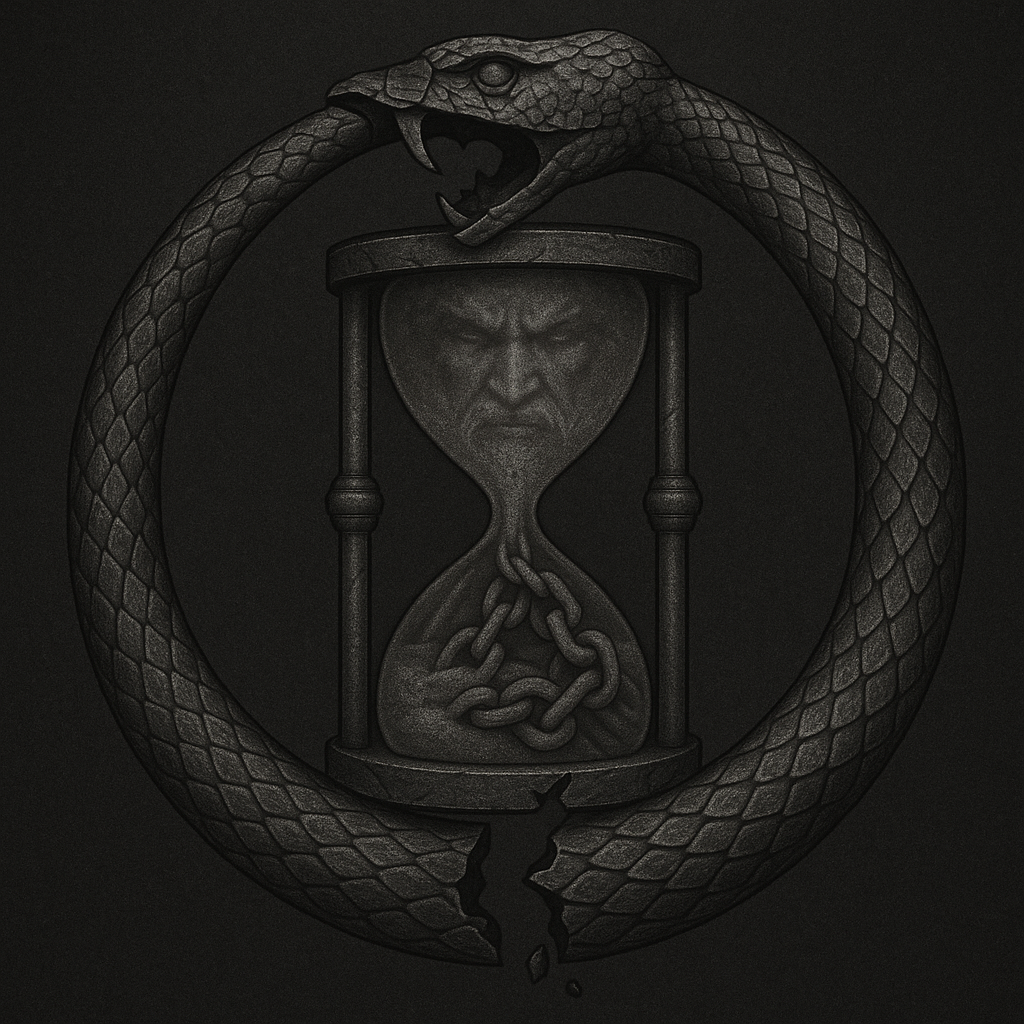Shemsu-Hekau: Priests of the Shackled Djinn
Structure
Voice of the Pact (Leader): Interprets Sharadiya’s djinn-binding laws. Judges high-profile oath-breakers.
Iron-Tongues (Enforcers): Djinn-Speakers: Negotiate with djinn. Oath-Breakers: Hunt those who violate pacts.
Name-Seekers (Initiates): Train in collection of Djinn true-names and desert law.
Culture
Theology of Djinn Binding: Laws of the Shemsu-Hekau
(As decreed by Sharadiya, enforced by her priests)
I. Rules for Djinn
All djinn are bound by Sharadiya’s Covenant—even free ones. Harming her descendants or breaking pacts invokes her wrath.
Freedom is earned, not taken.
Task-Bound: Serve until the bargain is complete.
Oath-Bound: Serve until the oath’s condition is met (e.g., "until my bloodline ends").
Penance-Bound: 100 years of service; may petition for release.
Eternal-Bound: No release. Reserved for mass murderers and soul-corrupters.
A djinn may bargain for better terms—but never with lies or loopholes.
I. Jurisdiction of Sharadiya’s Laws
Only djinn who physically enter the Faizum Kingdom’s deserts fall under Sharadiya’s Covenant.
Exemptions:
Djinn native to other planes (e.g., Plane of Fire, Hell) are unbound by default—unless they choose to swear to her laws.
Djinn summoned temporarily (e.g., by foreign sorcerers) are guests, not subjects.
II. Rules for "Local" Djinn (Faizum-bound)
All must obey Sharadiya’s Covenant—no exceptions.
Binding tiers still apply (Task/Oath/Penance/Eternal).
III. Rules for "Foreign" Djinn (Extraplanar)
No automatic binding. They operate under their native realm’s laws.
If they harm mortals in Faizum:
The Shemsu-Hekau treat them as invaders, not heretics.
Punishment: Banishment, not binding (unless they stay and fall under Covenant).
IV. Mortal Obligations
Never assume a djinn is "local."
Verify its origin before bargaining (e.g., ask for its plane-touched sigil).
Summoning foreign djinn?
Requires a Shemsu-Hekau permission (or face exile).
II. Rules for Mortals
No wishes without sacrifice. Every request must have equal exchange (e.g., "Heal me? Take my strength for a moon").
Threefold Balance is sacred:
Offer (what you give),
Limit (what the djinn cannot do),
Duration (when it ends).
Freeing a djinn = your responsibility.
If accidental, report it immediately to the Shemsu-Hekau.
If intentional, you replace its binding (body or soul).
III. Shared Laws
True names are fatal weapons.
Spoken only by Shemsu-Hekau or to seal a pact.
Oath-breakers are cursed.
Djinn: Imprisoned in obsidian.
Mortals: Branded with their sin (e.g., liars lose their tongue).
The desert judges all.
Unresolved crimes attract sandfire storms to purge the guilty.
Core Principle
"To bind is to balance—chains must fit the crime, and debts must be paid in full."
Assets
Within the Het-netjer: Courtyard of Whispers: Where djinn bargains are made. Chamber of the Glass Blade: Stores confiscated djinn artifacts.
Tenets of Faith
The Iron Code of the Shackled Djinn
"A Name is a Chain" - Knowing a djinn’s true name is a sacred duty. Revealing it carelessly is heresy.
"No Oath Without a Price" - Every pact must have equal exchange (e.g., a mortal’s memory for a djinn’s service).
"The Sand Remembers, the Fire Purges" - Oath-breakers are branded with their own sin (e.g., a liar’s tongue is seared with hot sand).
"Bind the Wild, Shelter the Loyal" - Rogue djinn must be shackled; those who serve faithfully may earn limited freedom.
"Sharadiya’s Law Over All" - Even kings must submit to her Fourfold Judgement in djinn disputes.
"A Djinn’s Smile Hides a Knife" - You must have constant vigilance.
Ethics
The Ethics of Binding
"To shackle a djinn is to save a soul—yours and theirs." - Djinn Are Not Slaves, But Dangerous Allies. Binding is protection, not tyranny. Unchecked djinn cause droughts, madness, and storms. Example: A djinn bound to a well must keep its waters pure—or face re-containment.
The Threefold Balance of Pacts
1. Every bargain must have:
- A mortal’s sacrifice (memory, skill, or years of life).
- A djinn’s limit (time, location, or action).
- An escape clause (e.g., "Until the oasis withers").
- Crippling a djinn’s will (e.g., erasing its name) is punishable by exile.
- Sharadiya’s law demands djinn retain enough freedom to choose corruption.
- Priests who enjoy domination are stripped of their titles.
- A proper binder feels grief, not pride, when sealing a pact.
Worship
Daily Rituals
Chanting at Dawn: Recite the "Names of the Bound" (list of djinn true names known to the priesthood).
Sand-Scribing: Write oaths in wet desert sand—if the wind erases them, the oath is flawed.
2. Weekly Ceremonies
Trial of the Glass Blade: A suspect holds a heated sand-glass dagger without flinching while denying an accusation. If they lie, the blade blackens their palm.
3. Sacred Acts
Binding Djinn: Offer the djinn a gift (water, a secret, or a drop of blood). Speak its true name while drawing its sigil in sand. Seal the pact with a handprint.
Punishing Oath-Breakers: Forced to walk barefoot to the next oasis with a djinn’s name carved into their back.
4. Sacred Spaces
Altar of the Four Arms: A stone slab with four indented handprints (for binding oaths).
Pit of Whispers: A dry well where priests commune with trapped djinn.
5. Offerings
To Sharadiya: Golden needles (Dexterity) and unbroken ropes (Endurance).
To Djinn: Vials of storm-laced sand or stolen breaths (collected in glass orbs).
Key Notes
No hymns or dances—worship is verbal and transactional.
No public festivals—rituals are private, held at moonless nights.

"No Oath Unpaid, No Chain Unearned."
Parent Organization
Deities
Location
Related Species
Related Ethnicities



Comments